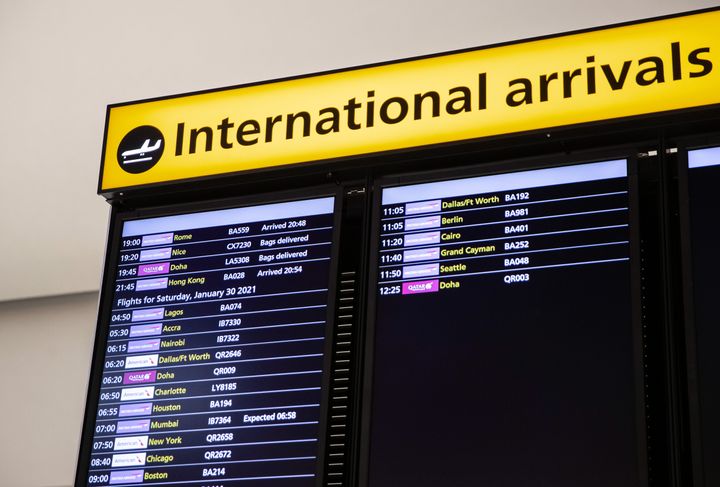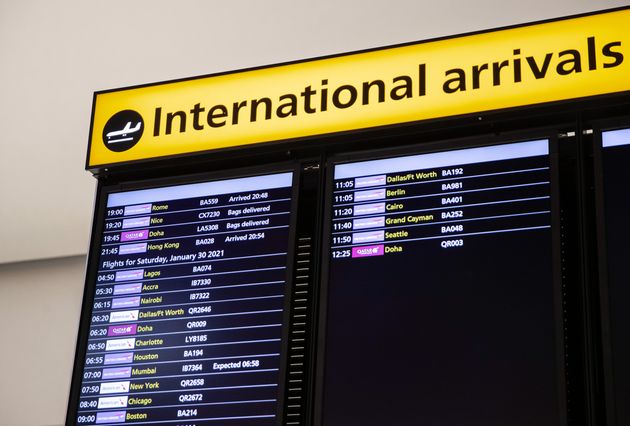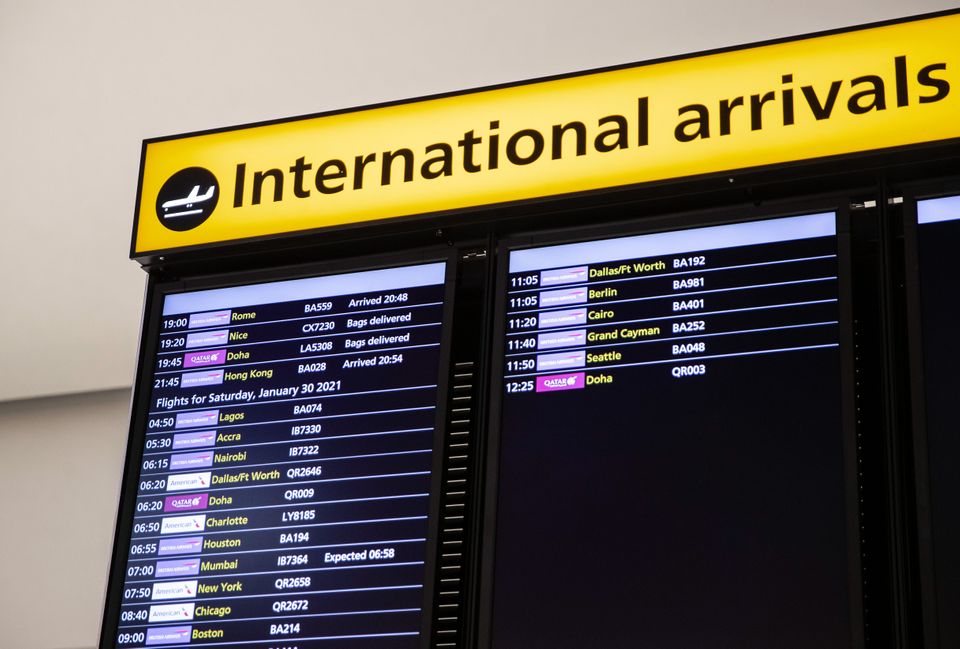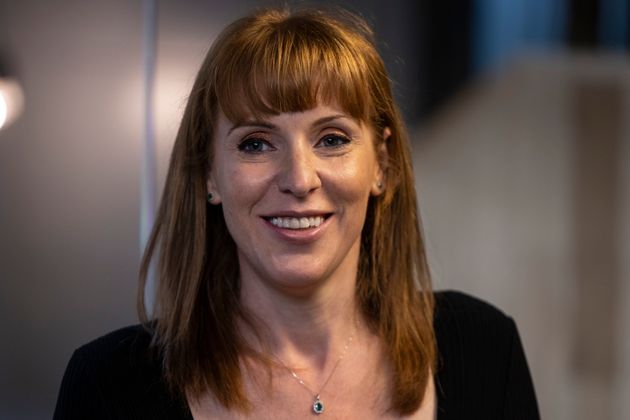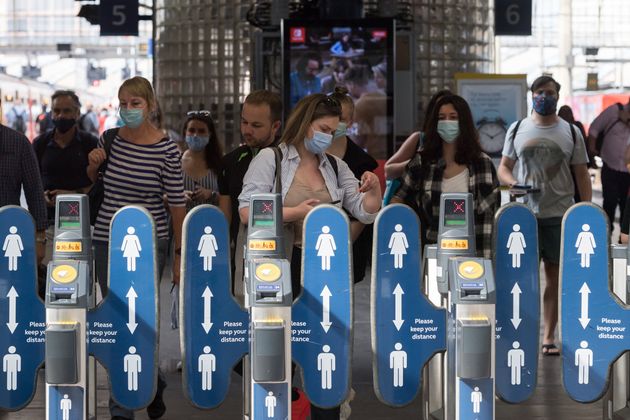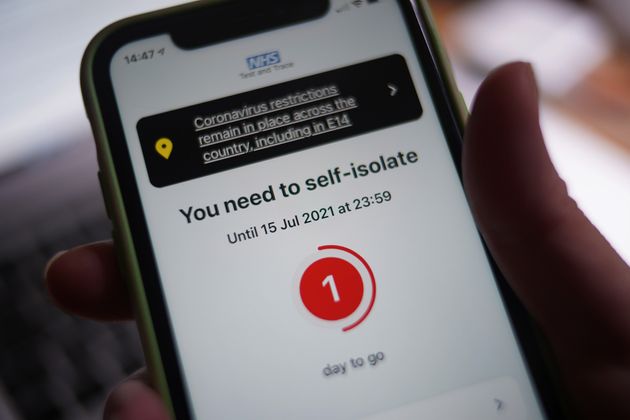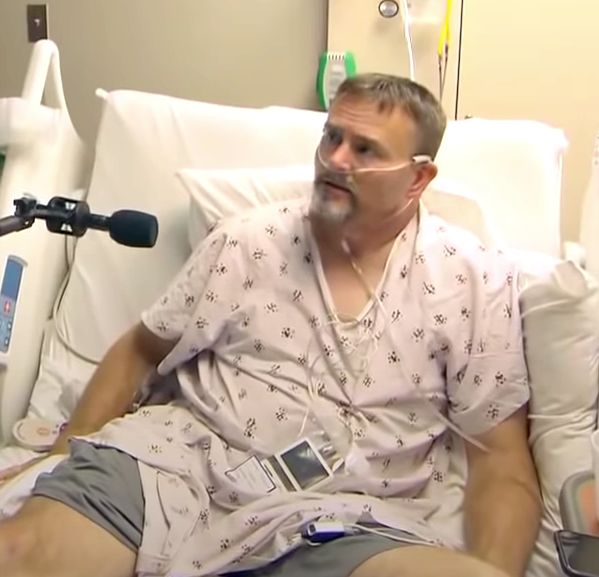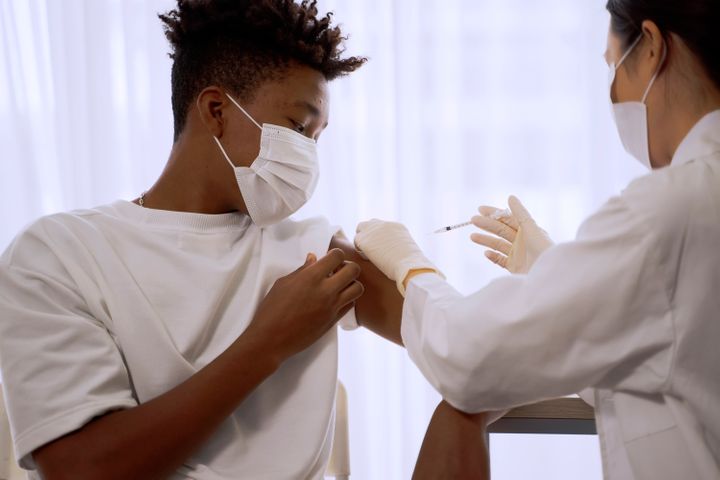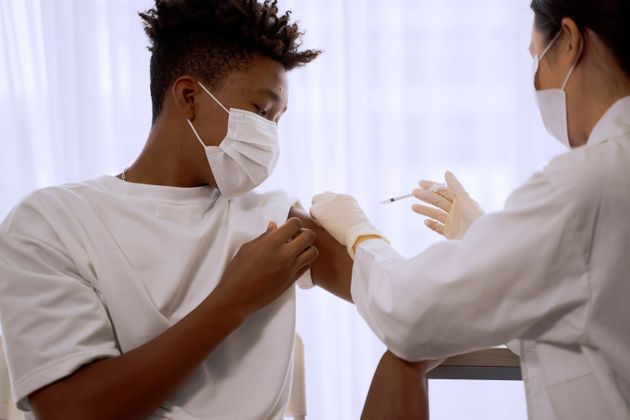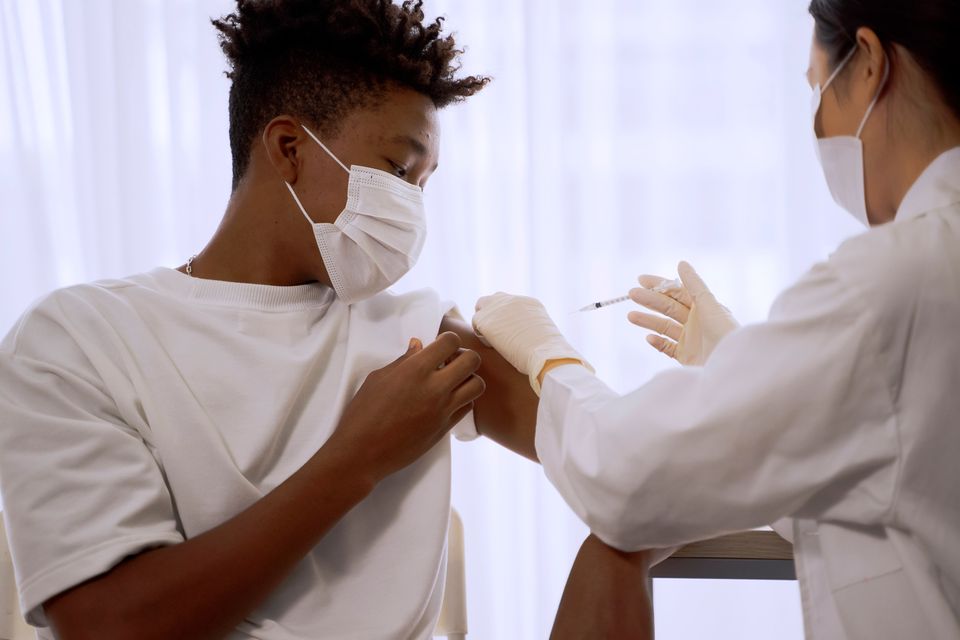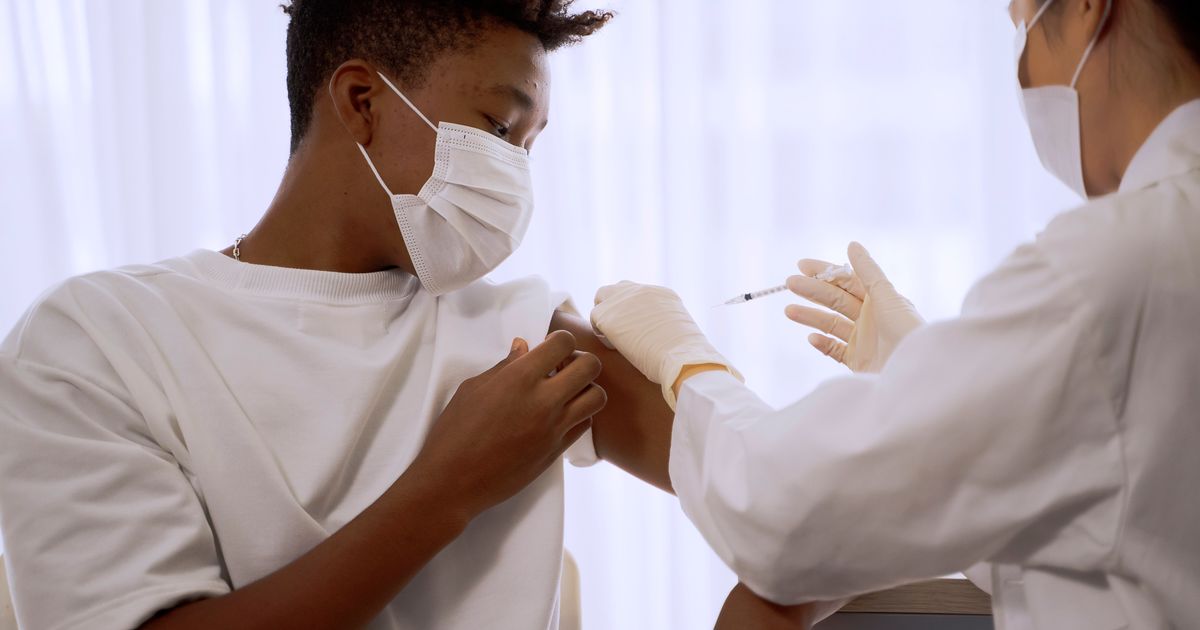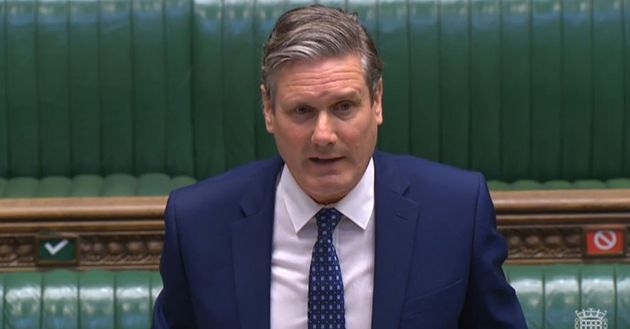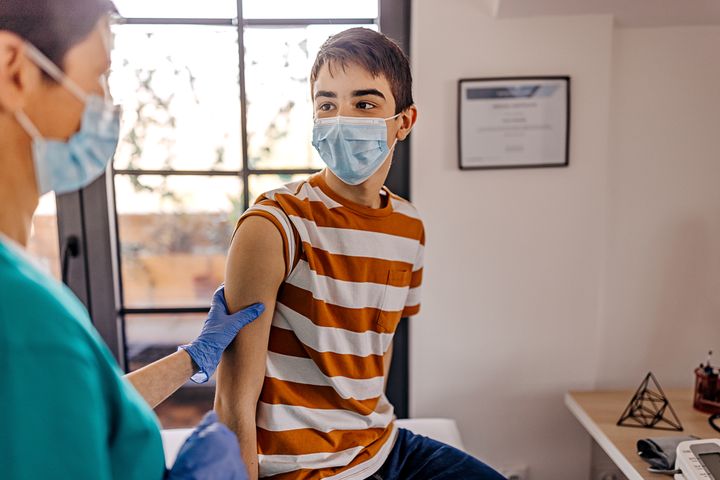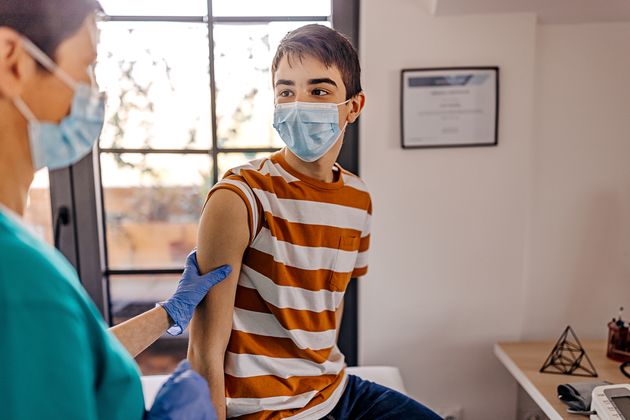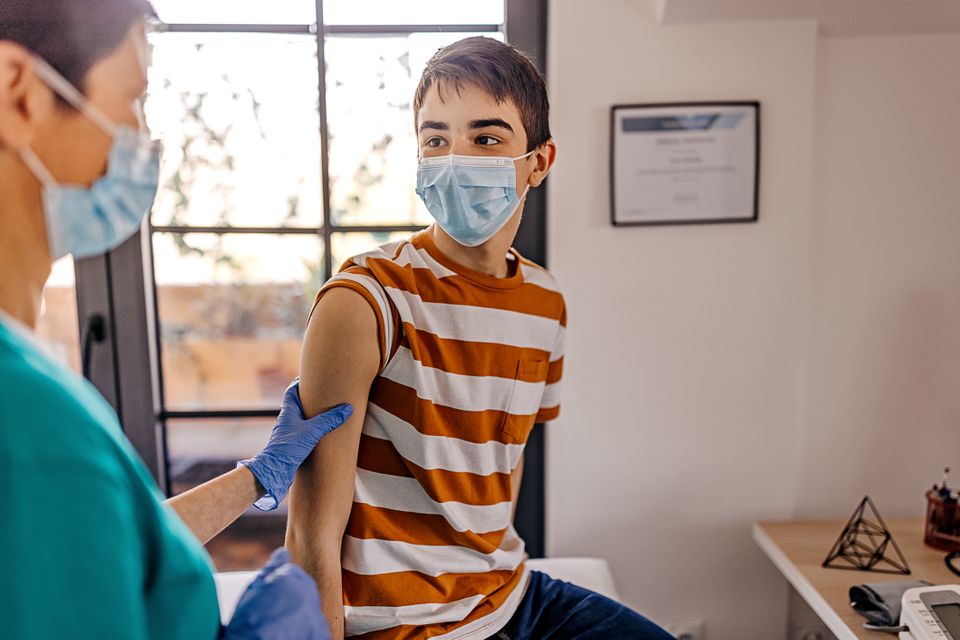Huw Fairclough/Getty Images / TOLGA AKMEN/POOL/AFP via Getty Images
Boris Johnson is under fresh pressure to fast-track plans to exempt fully vaccinated adults from Covid quarantine after the Welsh government announced it would introduce the move from August 7.
Double-jabbed adults in Wales will no longer have to self isolate after coming into contact with someone with the virus, with the change kicking in a full nine days earlier than England’s August 16 deadline.
The prime minister has this week insisted that his own date for the major shift in policy is “nailed on” and Downing Street confirmed on Thursday that he was “pretty emphatic” about his timetable.
But Tory MPs and businesses crippled by staff shortages are sure to demand a similar acceleration in England after fresh figures showed the “pingdemic” has hit record numbers.
Welsh first minister Mark Drakeford announced that NHS Wales’ Test Trace Protect (TTP) service will use the Welsh Immunisation Service to identify fully-vaccinated adults who will no longer be required to self-isolate.
He added that children in Wales will also be exempted from the need to home quarantine from August 7 – the day that the country is expected to finally come out of most Covid restrictions, known as “level zero”.
Drakeford stressed that everyone who tests positive for coronavirus or has symptoms must continue to isolate for 10 days, whether they have been vaccinated or not.
“We know a full course of the vaccine offers people protection against the virus and they are far less likely to contract it when they are identified as close contacts. This means they no longer need to self-isolate for 10 days,” he said.
“We can remove the need for self-isolation for the two million adults who have completed their vaccine course, helping to keep Wales safe and working.”
Wales is keen to ease pressure on vital services caused by the recent rapid rise in Covid cases, driven by the delta variant over the last two months.
Cases have risen by 800% since the end of May, when they were at very low levels. Over the last week case rates have started to fall in all parts of Wales.
The acceleration of the exemption date is also in part because 80% of adults in Wales have been fully vaccinated – the best rates in the UK and some of the best in the world. In England, the double-jabbed figure is 71%.
Some 689,313 alerts were sent to users of the NHS Covid-19 app in England and Wales, telling them they had been in close contact with someone who had tested positive for coronavirus.
The latest NHS figures, for the week to July 21, were an 11% rise on the previous record high of 619,733 alerts a week earlier.
From 7 August, instead of instructing fully-vaccinated adults to isolate, contact tracers and advisers in Wales will provide them with advice and guidance about how to protect themselves and stay safe.
The TTP service will provide a “warn and inform” service for all fully-vaccinated adults and under-18s, who are identified as close contacts.
Some extra safeguards will be put in place for those working with vulnerable people, particularly health and social care staff, including a risk assessment for staff working in health and care and daily lateral flow tests.
Members of the public will be strongly advised not to visit hospitals and care homes for 10 days.
Everyone identified as a contact of a positive case will continue to be advised – but not required – to have a PCR test on day two and day eight, whether they are fully vaccinated or not.
The new policy will affect adults where 14 days have passed since their last dose of the vaccine.
Separately, on Thursday the Welsh government announced that young adults aged from 17 years and 9 months were now being invited to book a jab or attend walk-in vaccination clinics for their first dose.
Again, this is ahead of England and appears to be due to the country’s higher vaccination rate.




